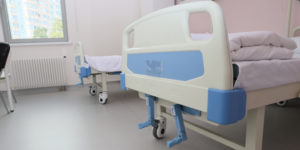Nursing depositions—Duty or disaster?
It’s every nurse’s nightmare: You receive a subpoena or a call from your Director of Nursing Services saying you need to provide a deposition. You do not recall the resident or the care and have no idea what to expect at a deposition. Panic ensues. You wonder: Did I do something wrong? Can I get out of this? Who will help me get through it?
A deposition, a pretrial discovery tool, is a process in which an attorney asks questions of a witness in the presence of a court reporter who transcribes the questions, answers and objections. The purpose of a deposition is to discover facts and opinions about issues pertaining to a potential lawsuit or investigation. Any person with knowledge about the care can be deposed, including the resident, family, facility owners, administrators and caregivers.
You will be an important piece in the litigation puzzle. Your deposition testimony will be used as the foundation for expert testimony and could be used to cross-examine other witnesses with information pertaining to the care. Deposition testimony can also be used to discredit a witness at trial if there is a change in testimony.
The best offense: Documentation
There is no way to predict which resident or family member will file a lawsuit, so each medical record must be accurate and complete. The legal medical record provides proof the standard of care was met and each caregiver acted reasonably based on the circumstances of the care at issue. The time between care delivery and a lawsuit could be months to years, so the medical record may be the only recounting of the care delivered. You can speak about your custom and practice in general at deposition, but there is no substitute for a well-written note and initialed treatment boxes.
Deposition dos and don'tsDO:
DON’T:
|
Laura Ginett, a defense attorney who practices in Chicago with national legal defense firm Hall Prangle and Schoonveld, says the best way to change the tide of skilled nursing facility lawsuits and achieve successful depositions involves two key proactive organizational steps:
- Audit to ensure all documents within the medical records are completed by staff in real time. This includes medication and treatment records as well as risk assessments and progress notes. Wound assessments must include detailed descriptions upon arrival, during care and at discharge. No exceptions.
- Ensure the medical records are collected and preserved at the end of the resident’s stay. This includes a reproducible, systematic process that allows all paper and electronic documents to be fused together to form one complete medical record. The record then needs to be stored in a secure location. There also must be a process for record retrieval and preservation for readmissions.
With accurate and complete charting, the deposition process becomes much easier.
Be prepared
Upon receiving a subpoena for a deposition, you should contact the facility where the care was rendered to be put in contact with the defense attorney. Avoid discussing the case with others until then, including with staff members or the attorney representing the plaintiff. The defense attorney will work with you to review the relevant medical records to refresh your memory of the care.
An effective tool to lessen anxiety is having an ally in the process who will help you prepare. The best first step, Ginett says, is to look at the records of the care you rendered “within the comfort of your own home where you will have adequate, uninterrupted time to review your care.” Ginett has found that Often, the preparation is more time consuming than the deposition itself, she adds. But, if preparation is done well, the actual deposition will proceed smoothly without surprises.
The second step involves working with the defense attorney. “The conversation with your attorney can help ease your fears and will explain where your care fits into the case as a whole. This meeting will better prepare you for the type and manner of the questions that will be asked,” Ginett says. Do your homework and be on time—this will make all the difference.
The defense attorney often participates in a few depositions every week. The caregiver is often doing a deposition for the first time. As the caregiver, you need someone in your corner. Rely on your expert in the process, the defense attorney. Ginett ends with this: “A statement that is true in life is true in the process—ask for what you need. If you want additional records or feel you need additional prep time, request it.”
Amy Stewart, RN, RAC-MT, DNS-CT is a subject-matter expert for The American Association of Directors of Nursing Services.

I Advance Senior Care is the industry-leading source for practical, in-depth, business-building, and resident care information for owners, executives, administrators, and directors of nursing at assisted living communities, skilled nursing facilities, post-acute facilities, and continuing care retirement communities. The I Advance Senior Care editorial team and industry experts provide market analysis, strategic direction, policy commentary, clinical best-practices, business management, and technology breakthroughs.
I Advance Senior Care is part of the Institute for the Advancement of Senior Care and published by Plain-English Health Care.
Related Articles
Topics: Articles , Clinical , Risk Management , Staffing











